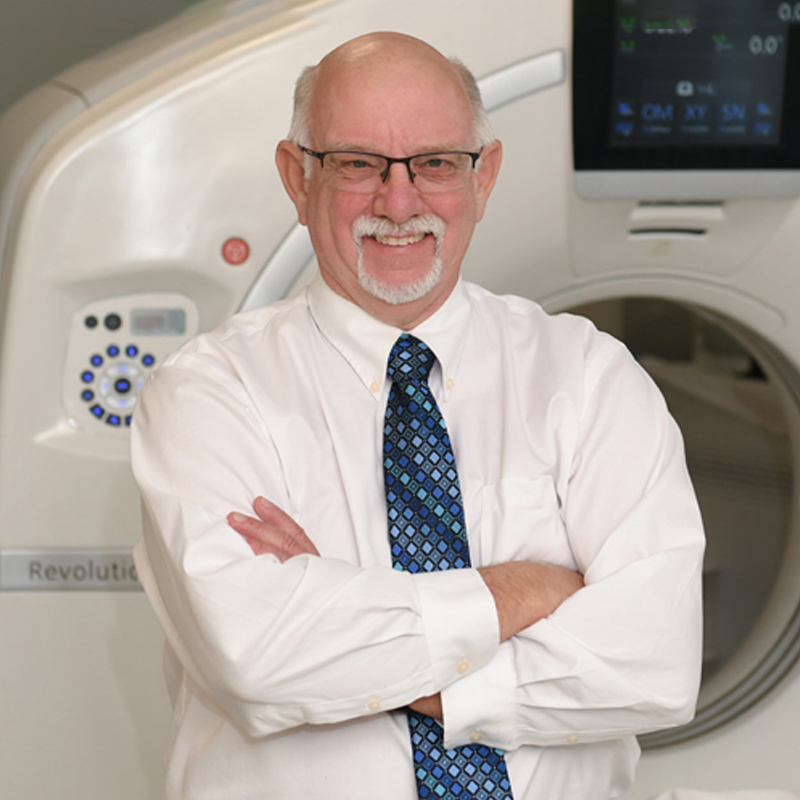Cardiac Expertise and Quick Thinking Save Local Mayor’s Heart

April 09, 2025
As Charlie Cocuzza prepared for his retirement last fall, the former supervisor for the New Jersey Department of Transportation and current mayor of Union Beach, New Jersey, needed new health insurance. At the same time, the 52-year-old father of two needed a new primary care physician, too.
With Charlie’s age and history of smoking, his new doctor wanted him to have a complete physical, including a heart screening. Charlie was hesitant but agreed to do a CT calcium scoring scan. This quick scan takes pictures of the heart to spot calcium within plaque. Plaque is a fatty material that can build up in arteries and increase the risk of heart attack.
Charlie’s results showed a score of 907, which is alarming. For someone under 65, a healthy score should be zero.
Clearing the Way
“A CT calcium scoring scan is a helpful preventive screening tool, like a mammogram or colonoscopy,” says Shaddy Younan, M.D., the cardiologist at Bayshore Medical Center who saw Charlie after his scan.
Scores between one and 400 indicate minimal to moderate amounts of calcium; scores over 400 suggest severe amounts of calcium. Because of Charlie’s high score, Dr. Younan felt there could be a blockage.
“When you have an abnormal calcium score, the calcium could be on either the inside or outside of the artery,” Dr. Younan says. “The higher the number, the more likely it is to be on the inside causing a blockage.”
The only way to tell for sure, he says, is to look inside. So Charlie had an angiography, a procedure in which dye injected in the veins helps show how blood is flowing through the blood vessels and the heart. Using an X-ray, the cardiologist can see if there are any blockages or damage to the blood vessels.
Preserving His Heart
Sure enough, three of Charlie’s arteries were more than 80 percent blocked. Dr. Younan cleared two of the clogged arteries and propped them open with stents, small metal tubes that hold the artery open. After spending the night in the hospital, Charlie went home. The plan was to rest and heal, so he could come back and have Dr. Younan clear the last artery. Less than a week later, though, Charlie started feeling heartburn. When it wouldn’t go away, he returned to the hospital to get it checked out. Dr. Younan decided to clear the final blockage that day.
“Rather than waiting a couple weeks or months, we decided to take care of the blockage immediately,” Dr Younan says. “You can fix blockages, but you can’t repair damage to the heart muscles,” which was a risk if Charlie had a cardiac event, like a heart attack, while he healed.
After about six months of changing his diet, quitting smoking and rebuilding his strength, Charlie says he feels even better than before his procedure. He’s thankful to Dr. Younan for his patience, quick thinking and skill. And he’s especially grateful to the caring Bayshore staff, who made his stay more comfortable.
“I'm so happy that we were able to catch this so that I could be here for my family and Union Beach.”
Next Steps & Resources
- Meet our source: Shaddy K. Younan, M.D.
- Schedule a CT Calcium Scoring scan to know your risk. Or call 1-844-HMH-WELL.
- Make an appointment with a cardiologist near you or call 800-822-8905.
- Learn more about heart care at Hackensack Meridian Health.
The material provided through HealthU is intended to be used as general information only and should not replace the advice of your physician. Always consult your physician for individual care.






